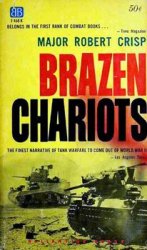The process of economic recovery inaugurated by NEP was overshadowed in 1922 by the onset of Lenin’s prolonged and fatal illness. In May 1922 he had a stroke which incapacitated him for many weeks. He returned to work and delivered several speeches during the autumn. But his physical powers were manifestly under strain. On December 12, on medical advice, he withdrew to his apartment in the Kremlin, and there four days later he had a second and severer stroke which permanently paralysed his right side. For the next three months physical incapacity did not affect his mental faculties; and, though none of the other leaders were apparently allowed to see him, he continued to dictate notes and articles on party affairs. These included the famous “testament” of December 25 with its postscript of January 4, 1923. But on March 9, 1923, a third stroke deprived him of speech; and, though he lived for ten months longer, he never worked again.
After his third stroke hopes of Lenin’s eventual recovery gradually faded. The question of the succession loomed ahead, and clouded every other issue. The tightening of party discipline at the tenth party congress in March 1921 had been followed by a party purge, and was further emphasized at the eleventh congress a year later, when 22 dissidents, most of them members of the former Workers’ Opposition, were censured, and two of their five leaders expelled from the party; Lenin had asked for the expulsion of all five. This fresh crisis called for a further strengthening of the - party machine. The three co-equal secretaries of the party central committee appointed in 1919 (see p. 42 above) had proved ineffective, and were removed from office. On April 4, 1922, a few days after the eleventh congress, it was announced that Stalin had been appointed general secretary, wath Molotov and Kuibyshev as secretaries. Nobody found the announcement particularly significant. Stalin was known as a hard-working, elficient and loyal party official.
When Lenin returned to work after his first stroke, he was evidently alarmed by the way in which Stalin had patiently built up both the power and authority of his office, and his own personal standing; he was now for the first time a leading figure in the party. Lenin did not like either of these developments. He was much preoccupied at this time with the growth of bureaucracy in the state and in the party; and he became acutely mistrustful of Stalin’s personality. The testament was dictated, a few days after the second stroke which put in doubt his chances of recovery, in a mood of an anxious foreboding. Lenin began with the danger of a split between “the two classes”—the proletariat and the peasantry—on whose alliance the party rested. This he dismissed as remote. The split which he envisaged as a threat for the “near future” was between members of the central committee; and the relation between Stalin and Trotsky was “a big half of the danger of that split”. Stalin had “concentrated an enormous power in his hands”, and did not “always know how to use that power with sufficient caution”. Trotsky, though “the most able man in the present central committee”, showed “too far-reaching self-confidence and a disposition to be too much attracted by the purely administrative side of affairs”. Other leading members of the committee did not escape criticism. The hesitation of Zinoviev and Kamenev at the critical moment in October 1917 was recalled; this was “not, of course, accidental, but. . . ought as little to be used against them personally as the non-Bolshevism of Trotsky”. Bukharin, though “the biggest and most valuable theoretician in the party” and “a favourite of the whole party”, had never fully understood the dialectic, and his views could “only with the very greatest doubt be regarded as fully Marxist”. It was an unexpected verdict on the man whose ABC of Communism, written in conjunction with Preobrazhensky, and Theory of Historical Materialism were still wddely circulated party textbooks. But, however perspicacious Lenin’s diagnosis of the shortcomings of his colleagues, the only cure prescribed in the testament was a proposal to increase the membership of the central committee to 50 or 100; and this was unlikely to touch the root of the problem.
Lenin’s attention had been drawn in the autumn of 1922 to what was happening in Georgia, where procedures for the incorporation of the Georgian republic into the USSR had encountered stiff resistance from the Georgian party committee. A commission headed by Dzerzhinsky visited Georgia in September, and returned to Moscow with the two dissident leaders. At this point Lenin intervened, overruled StaKn who was in charge of the question, and believed himself to have secured a compromise. But he did not follow up the matter, and relations' with the Georgians again became embittered. Ordzhonikidze now vi. sited Tiflis and, after a violent struggle, dismissed the rebel leaders, and forced the committee to accept Stalin’s proposals. A few days after dictating the testament, Lenin, under what impulse is not clear, returned to the Georgian question. He dictated a memorandum in which he confessed himself “seriously to blame before the workers of Russia” for having failed to intervene effectively at an earlier stage. He denounced the recent proceedings as an example of “Great-Russian chauvinism”, referred to Stalin’s “hastiness and administrative impulsiveness”, and severely censured him, Dzerzhinsky and Ordzhonikidze by name. Then, on January 4, 1923, Lenin’s mistrust of Stalin again burst out, and he added a postscript to the testament. Stalin, he now said, was “too rude”, and should be replaced as general secretary by someone “more patient, more loyal, more polite, and more attentive to comrades, less capricious etc.”; and as the motive for this recommendation he once more cited the danger of a split, and “the relation between Stalin and Trotsky”. Finally, early in March, after an occasion on which Stalin was said to have insulted Krupskaya (who had presumably refused him access to Lenin), Lenin wrote a letter to Stalin breaking off “comradely relations”. Three days later came the third stroke which ended Lenin’s active Ufe.
The approach of the twelfth party congress, which met on April 17, 1923, was a source of embarrassment. Who was to don th6 mantle of leadership which Lenin had worn without challenge at previous congresses? Lenin’s eventual




 World History
World History









